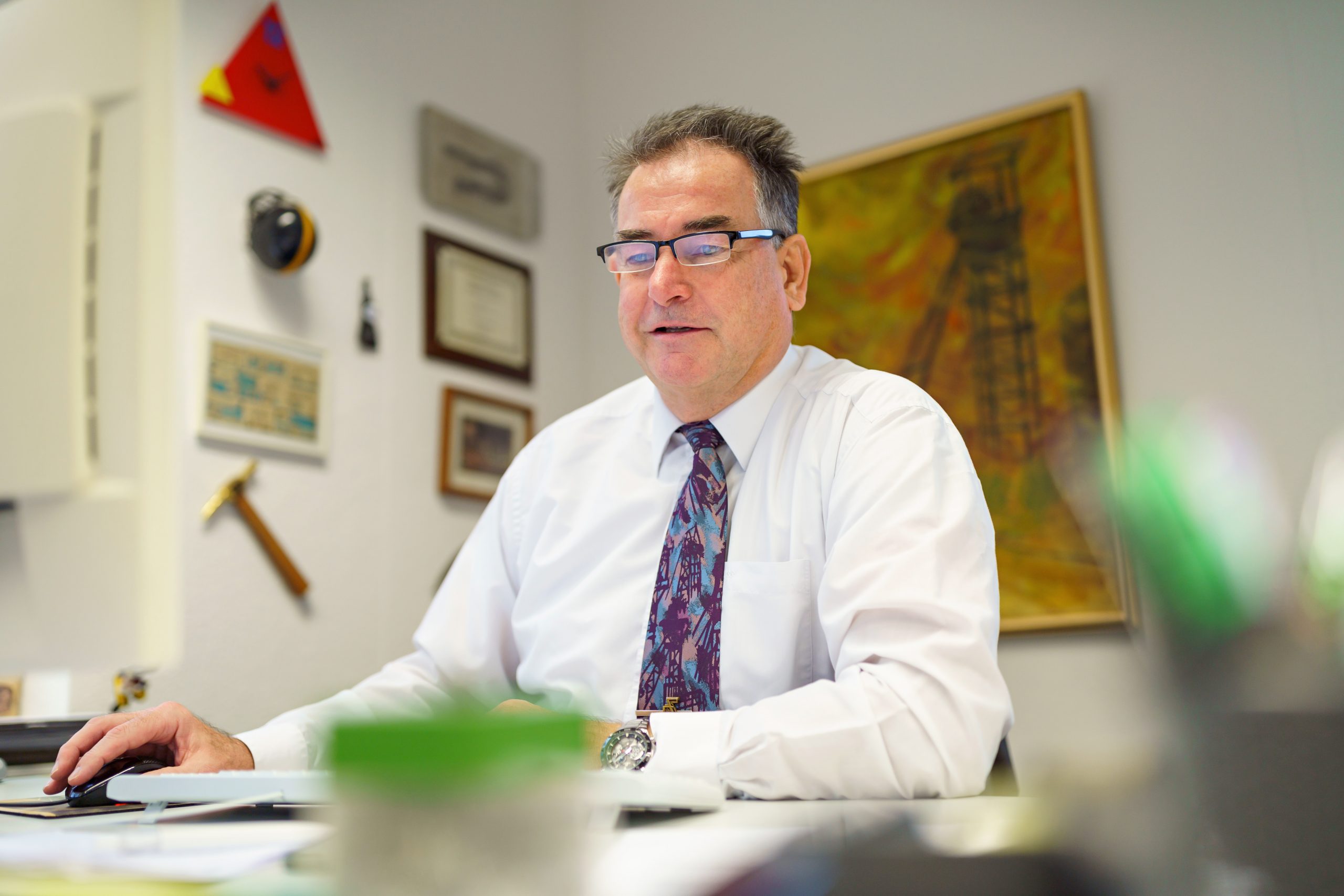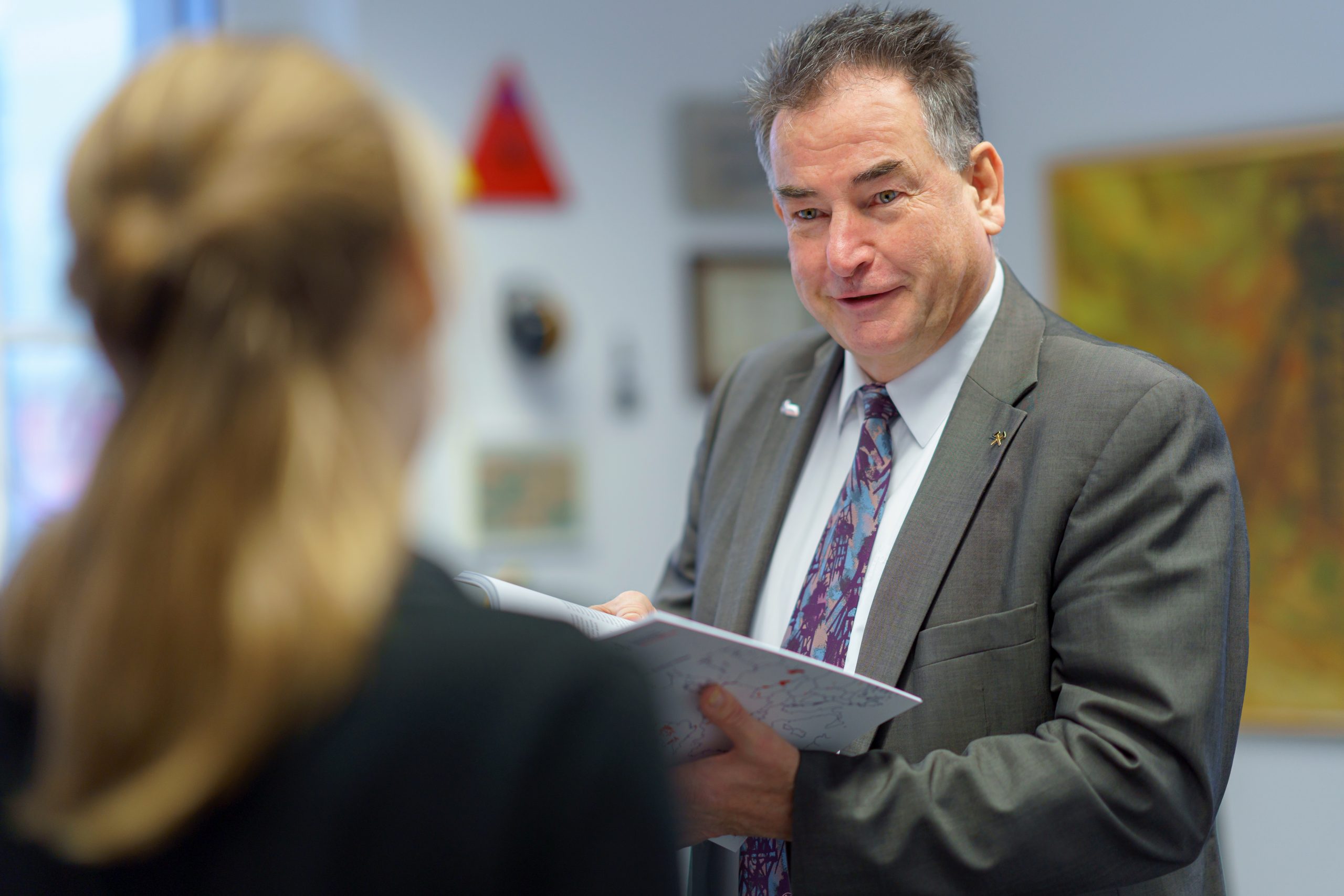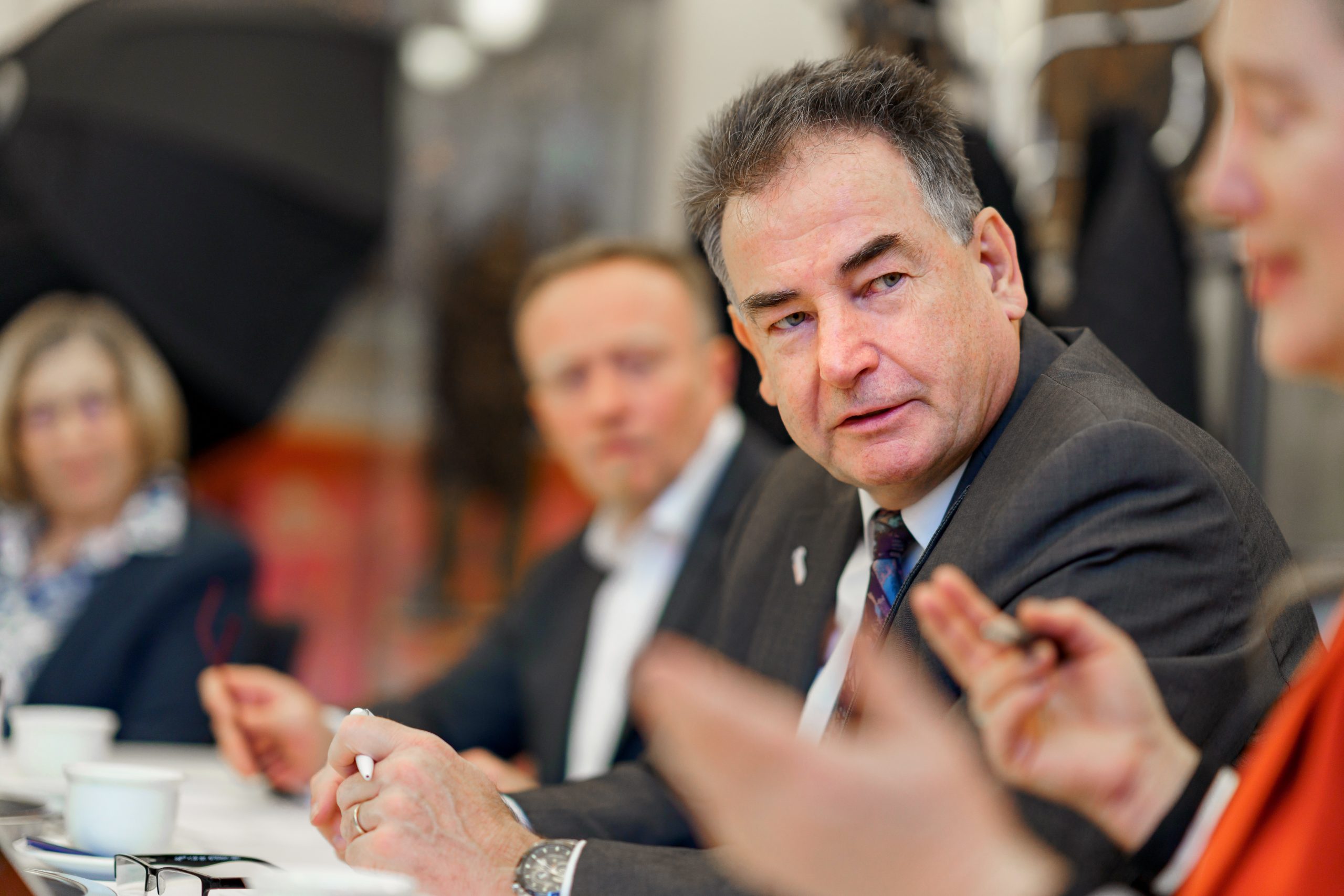Prof. Dr. Ulrich Paschedag’s contribution to the team is his long-standing know-how of the mining industry, both nationally and internationally. As head of the Research Center of Post-Mining, he wants to see the relevant fields of research further expanded in coming years: His ambition is for the subject areas to become more diverse, with the cross-linking aspect intensified even further.

In the past, the Research Center´s main focus was on investigating rising minewater. What other focal aspects are already ongoing or currently planned?
Prof. Dr. Ulrich Paschedag: At the outset, it was only natural that we concentrated mainly on the challenges presented by legacies of underground mining sites. But we have already conducted various projects in other areas of mining, too. This is something we'd like to build upon, in coming years. We’ve already commenced work in relation to the gas and oil industry, in the area of storage caverns. Geo-monitoring is another focal aspect we will be expanding on. Alongside that, we also want to invest in activities working in the areas of material sciences and structural change, and we will be seeking, in particular, to leverage the potential contained within the post-mining era.

One of science’s most important remits is to create transparency. How does that work when it comes to post-mining?
Prof. Dr. Ulrich Paschedag: In reality, this is not so easy. We are concerned with highly complex questions and interrelationships that take place in locations that are frequently still difficult to access. Underground, for example, in places most people have never been to, and which will soon become inaccessible to all of us. This is the reason why we, as scientists, have to make a special effort to formulate our post-mining findings in a way that can be generally understood by everyone. Because there's one thing of which I'm certain: Only if the normal citizen, the lay person, can understand the interrelationships, will the fear of ignorance be pushed aside, and allow us to implement well-designed solutions.

In reality, the Research Center of Post-mining is still a relatively new institution. How do you see its future?
Prof. Dr. Ulrich Paschedag: We were officially formed in 2015. During this brief period, the Research Center has established itself as a centre of expertise, and an independent research institution forming part of the Technische Hochschule Georg Agricola We work closely together with mining and predecessor companies, with public authorities, federations, with the industry and other universities. However, when it comes down to our research focuses and awareness, we are still rooted locally. The issue now is for us to establish stronger networks, and operate beyond the boundaries of the Ruhr Area. Only by working together with other experts, can we fully investigate the multi-faceted issues surrounding post-mining, in order to then meet our responsibilities to society. We are working on all of these aspects. So, I see the future of our insitution as decidedly positive.
Vita – Prof. Dr. Ulrich Paschedag
Prof. Dr. Ulrich Paschedag has been head of the Research Center of Post-Mining since 1 September 2019. Even before then, the Research Center formed part of his responsibilities in his role as head of the Geo-resources and Process Engineering research area, along with various study programmes organised by him. Having gained his doctorate in mining engineering, as Professor for International Mining, he continues to impart his knowledge from his years of experience with mining machinery and its deployment, to the students of the Mineral Resource and Process Engineering master's programme. He also seeks to share his (international) experience in the industry with his colleagues at the Research Center.


